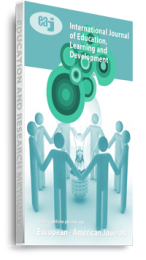As important as language is in the existence of man, so it has its attendant issues since human beings exist in numerous linguistic and ethnic groups, the languages of larger groups overriding those of smaller groups for varied reasons. Countries of the world especially in Africa are made up of divergent linguistic and ethnic groups. Most of these multilingual countries have adopted the languages of their colonial masters as official languages. Policies across multilingual African countries have adverse effects on indigenous languages. In Nigeria, the adoption of English as the official language has created lack of interest in the country’s over 400 indigenous languages especially the so-called minority languages. Igala, one of the relegated languages needs to be maintained for group identity, interaction, transmission of culture and values, exploration and exploitation of the environment of the Igala people. A majority language in Kogi State, North Central, Nigeria. It is also spoken in other neighbouring States of Kogi. The mother tongue instruction of the National Policy on Education is considered among other recommendations as one way of ensuring the maintenance of Igala.
Keywords: Ethnic groups, Indigenous languages, Language policy, Mother tongue instruction, Revalorization

